very nice people there, helped me alot with symptoms needs a little more decoration looks sad and boring and gloomy and dark needs more light and happiness , could use some more cleaning smells like a old libery
About Harbor
Harbor is a leading nonprofit mental health and addiction treatment provider with over 100 years of experience. Across the board, over 24,000 clients are served by Harbor yearly. With several locations across Ohio, this particular outpatient facility is based in Toledo and provides accredited support to clients of all ages and their families.
Drug Rehab Services in Lucas County for Teens and Adults
This center provides support for substance abuse through a variety of programs and services, including age-appropriate youth and adult programs.
Programming for teens and young people is available to clients aged 11 to 17, while adult programming is aimed at adults aged 18 and older. Before anyone can get started, assessments are required to establish client needs and preferences.
You can access several addiction treatment services here, while for other more specific programs and services, you may be referred to one of the organization’s nearby locations. You’ll be able to access medication-assisted treatment (MAT) and individual, group, and family counseling.
Specialized Addiction Treatment for Women in Toledo, OH
For female-identifying clients in need of more intensive care, referrals are available to the nearby Women’s Residential Drug Rehab. This is available to women aged 18 and older, including pregnant and postpartum individuals and women with young children. Babies and children up to 5 years of age can stay with their mothers here.
The North 22nd Street location also has other specialized services. They have mental health assessments for infants and young kids as well as an after school program for kids and teenagers ages 7 to 17 to foster life skills and lay the foundation for future success.
Latest Reviews
Rehab Score
Gallery
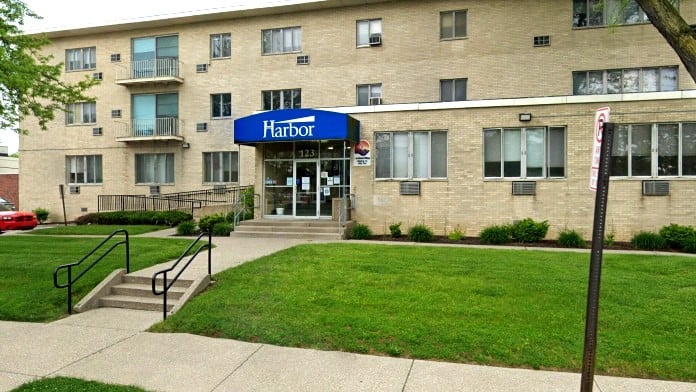
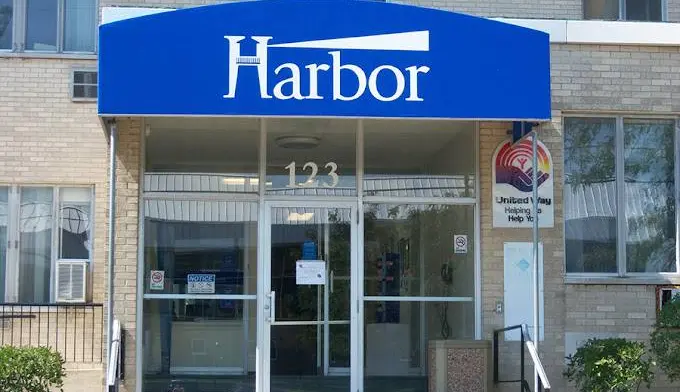
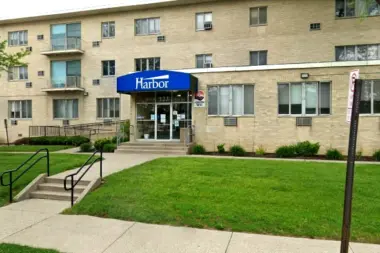
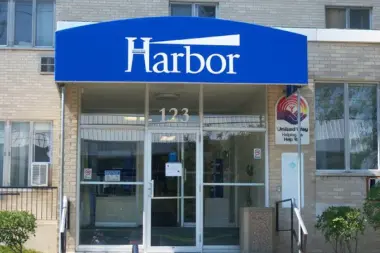
Other Forms of Payment
Medicaid is a state based program that helps lower-income individuals and families pay for healthcare. Medicaid covers addiction treatment so those enrolled can use their coverage to pay for rehab. When a program accepts Medicaid the client often pays very little or nothing out of their own pocket.
Private insurance refers to any kind of healthcare coverage that isn't from the state or federal government. This includes individual and family plans offered by an employer or purchased from the Insurance Marketplace. Every plan will have different requirements and out of pocket costs so be sure to get the full details before you start treatment.
Self-pay involves paying for treatment out of your own pocket. You can use savings or credit, get a personal loan, or receive help from family and friends to fund your treatment. If you don't have insurance or your insurance plan doesn't cover a specific program, self-pay can help ensure you still get the care you need.
Medicare is a federal program that provides health insurance for those 65 and older. It also serves people under 65 with chronic and disabling health challenges. To use Medicare for addiction treatment you need to find a program that accepts Medicare and is in network with your plan. Out of pocket costs and preauthorization requirements vary, so always check with your provider.
Military members, veterans, and eligible dependents have access to specific insurance programs that help them get the care they need. TRICARE and VA insurance can help you access low cost or no cost addiction and mental health treatment. Programs that accept military insurance often have targeted treatment focused on the unique challenges military members, veterans, and their families face.
Financial aid can take many forms. Centers may have grants or scholarships available to clients who meet eligibility requirements. Programs that receive SAMHSA grants may have financial aid available for those who need treatment as well. Grants and scholarships can help you pai for treatment without having to repay.
Sliding scale payments are based on a client's income and family size. The goal is to make treatment affordable to everyone. By taking these factors into account, addiction recovery care providers help ensure that your treatment does not become a financial burden to you or your family, eliminating one barrier to care.
Addiction Treatments
Levels of Care
Uses The Matrix Model for relapse prevention skills group therapy, providing up to 20 weeks of 2-hour, weekly group therapy sessions, providing the client with practical education about how to strengthen and maintain sobriety, and continue to build sober social connections which support a totally abstinent lifestyle. Group therapy is supported by weekly individual case management. This group is appropriate for a client who has already established at least several months of abstinent sobriety, and has already received and embraced education about addiction and has begun to establish a personal program of recovery.
Uses The Matrix Model for early recovery skills group therapy, providing up to 18 3-hour, 3x/week group therapy sessions educating the client on recognizing the symptoms and triggers for addiction, establishing a solid program of recovery, avoiding triggers, and integrating socially with others in recovery, to establish a totally abstinent lifestyle. Group therapy is supported by weekly individual case management.
Uses The Matrix Model and other Motivational Interviewing materials and techniques to help clients who are in the "contemplation" or very early "preparation" stage of change, as they contemplate the costs of developing and achieving a start at a totally abstinent lifestyle. This groups meets twice weekly for 1 1/2 hour sessions, and is targeted at the client who may not have necessarily achieved, or even attempted, sobriety at the time of engagement, but is willing to work with a case manager and group facilitator to address barriers in his/her life that have motivated AOD use and discouraged attempting sobriety. NIOP Early Intervention has no time limit, and can continue as long as the client is willing to engage.
Completing a drug or alcohol rehab program shouldn't spell the end of substance abuse treatment. Aftercare involves making a sustainable plan for recovery, including ongoing support. This can include sober living arrangements like halfway houses, career counseling, and setting a patient up with community programs like Alcoholics Anonymous (AA) or Narcotics Anonymous (NA).
Treatments
Many of those suffering from addiction also suffer from mental or emotional illnesses like schizophrenia, bipolar disorder, depression, or anxiety disorders. Rehab and other substance abuse facilities treating those with a dual diagnosis or co-occurring disorder administer psychiatric treatment to address the person's mental health issue in addition to drug and alcohol rehabilitation.
Mental health rehabs focus on helping individuals recover from mental illnesses like bipolar disorder, clinical depression, anxiety disorders, schizophrenia, and more. Mental health professionals at these facilities are trained to understand and treat mental health issues, both in individual and group settings.
Programs
Adult rehab programs include therapies tailored to each client's specific needs, goals, and recovery progress. They are tailored to the specific challenges adult clients may face, including family and work pressures and commitments. From inpatient and residential treatment to various levels of outpatient services, there are many options available. Some facilities also help adults work through co-occurring conditions, like anxiety, that can accompany addiction.
Young adulthood can be an exciting, yet difficult, time of transition. Individuals in their late teens to mid-20s face unique stressors related to school, jobs, families, and social circles, which can lead to a rise in substance use. Rehab centers with dedicated young adult programs will include activities and amenities that cater to this age group, with an emphasis on specialized counseling, peer socialization, and ongoing aftercare.
Clinical Services
Cognitive Behavioral Therapy (CBT) is a therapy modality that focuses on the relationship between one's thoughts, feelings, and behaviors. It is used to establish and allow for healthy responses to thoughts and feelings (instead of unhealthy responses, like using drugs or alcohol). CBT has been proven effective for recovering addicts of all kinds, and is used to strengthen a patient's own self-awareness and ability to self-regulate. CBT allows individuals to monitor their own emotional state, become more adept at communicating with others, and manage stress without needing to engage in substance abuse.
AOD treatment starts with an assessment to determine the person’s individual treatment needs. Services are provided based on the person’s treatment needs and according to the individual treatment plan created together by the client and staff. Research clearly demonstrates that recovery is far more successful and sustainable when loved ones like family members participate in rehab and substance abuse treatment.
Group therapy is any therapeutic work that happens in a group (not one-on-one). There are a number of different group therapy modalities, including support groups, experiential therapy, psycho-education, and more. Group therapy involves treatment as well as processing interaction between group members.
In individual therapy, a patient meets one-on-one with a trained psychologist or counselor. Therapy is a pivotal part of effective substance abuse treatment, as it often covers root causes of addiction, including challenges faced by the patient in their social, family, and work/school life.
Life skills trainings involve all the skills a person must have in order to function successfully in the world. The YES Program includes both job placement and retention activities. Job development activities include: job readiness and job-seeking skills classes, job development and job placement. Retention activities include not only follow-along to intervene as needed with the employer and youth, but also life skills classes (eg, parenting skills, anger management, pregnancy prevention, and budgeting) and case management services to address non-work needs of participants such as transportation, child care, and other supports.
Motivational Interviewing (MI) is a clinical approach to helping people with substance abuse issues and other conditions shift behavior in positive ways. It is more goal-oriented than traditional psychotherapy, as MI counselors directly attempt to get clients to consider making behavioral change (rather than wait for them to come to conclusions themselves). Its primary purpose is to resolve ambivalence and help clients become able to make healthy choices freely.
Recreational therapy (aka therapeutic recreation) uses creative and fun activities to help with addiction recovery. Recreational therapists lead patients in entertaining and engaging activities like sports or games; art (drawing, painting, sculpture); drama, music, and dance; and/or community outings (field trips) to improve patients' physical, social, and emotional well-being.
Trauma therapy addresses traumatic incidents from a client's past that are likely affecting their present-day experience. TF-CBT (Trauma Focused-Cognitive Behavioral Therapy) is a short-term treatment typically provided in 12 to 18 sessions of 60 to 90 minutes, depending on treatment needs. The intervention is typically provided in our office, but it has been used in community and in-home settings.
Amenities
-
Private Setting
Staff & Accreditations
Staff
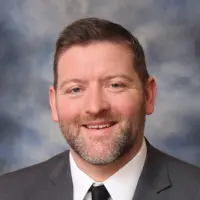
Dustin Watkins, MRC, BCBA
President & CEO
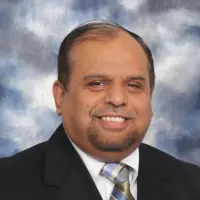
Irfan Ahmed, MD
Chief Medical Officer
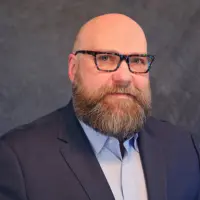
Philip D. Atkins, PhD, LICDC-CS, OCPC
Chief Care Coordination Officer
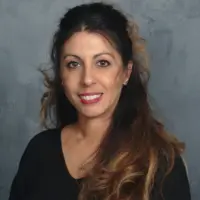
Christie Boyle, BA, CDCA, QMHS
Chief Medical Support Officer
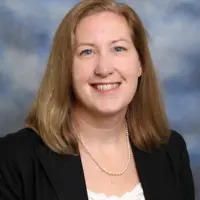
Cara Douglas, LPCC-S
Chief Quality Officer
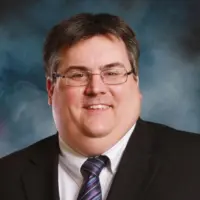
John Fortner, MBA
Chief Infrastructure Officer
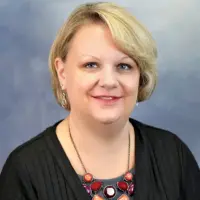
Valerie Moyer, Ph. D
Chief Clinical Officer
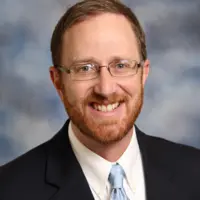
Dave Timmerman, M.Ed., PCC, CRC
Chief Vocational Officer
Accreditations

The Commission on Accreditation of Rehabilitation Facilities (CARF) is a non-profit organization that specifically accredits rehab organizations. Founded in 1966, CARF's, mission is to help service providers like rehab facilities maintain high standards of care.
CARF Accreditation: Yes
Contact Information
123 22nd Street
Toledo OH, 43604